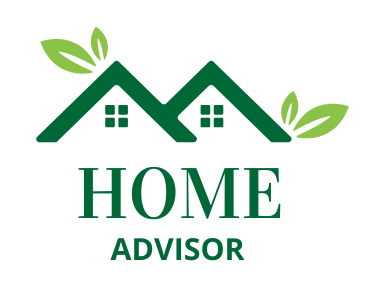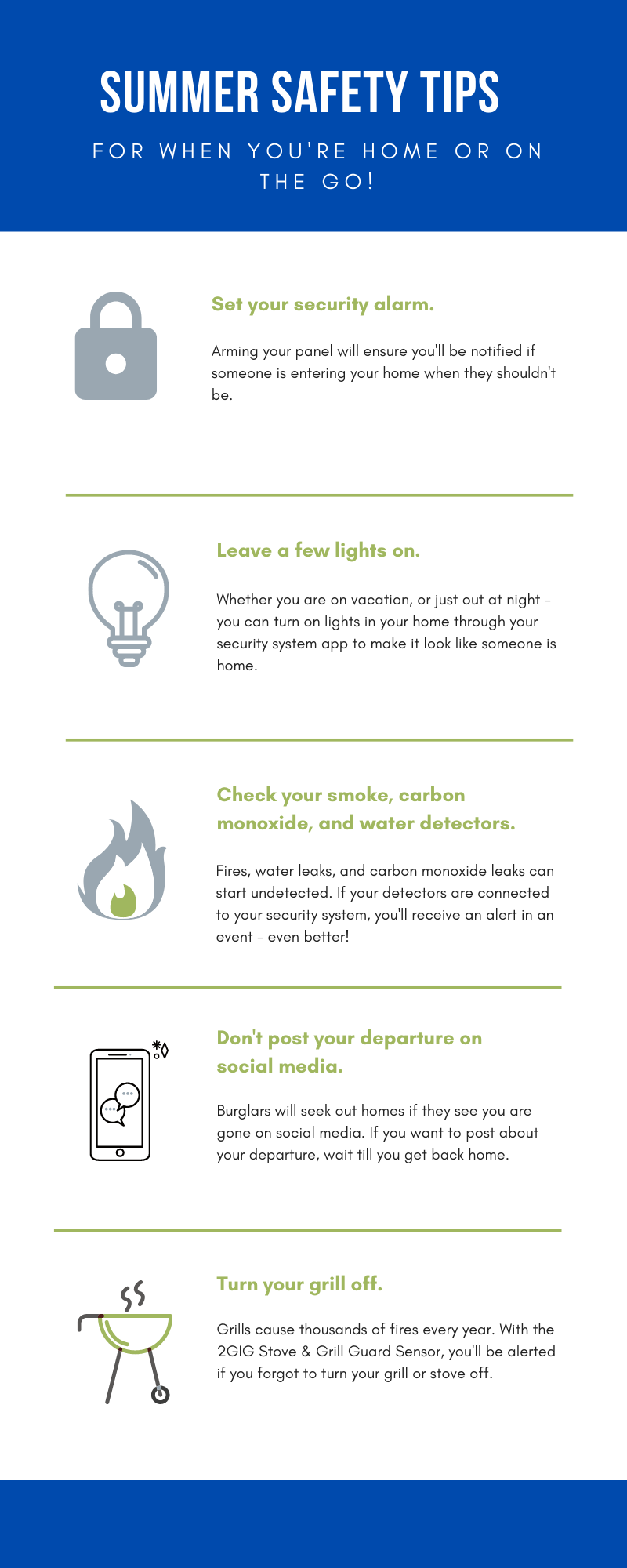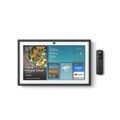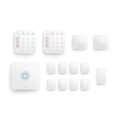Consider key factors in home security systems. These include monitoring, installation, integration, and support. Prioritize systems that offer reliable alerts, smart home compatibility, and user-friendly controls.
Also Read
Home security has evolved, embracing technology for robust protection. A good security system is now essential. It is an essential investment for safeguarding what matters most.
Consumers should hunt for solutions that provide round-the-clock monitoring and prompt emergency responses. Crime rates fluctuate. A versatile system can integrate with current technologies. It can grant peace of mind. If you need good web hosting, click here.
The right setup will offer a seamless blend of surveillance. It will include alarms and smart device syncing. Choose a provider known for great customer service. This will ensure you have the help you need on your security journey.
Security systems should give homeowners power. They should give them control and confidence in their homes’ safety.

Credit: www.barrybros.com
Evaluating Home Security Needs
Understanding your home security needs is critical before investing in a system. The right choice can offer peace of mind and keep your family safe. Let’s explore key factors to consider.
Assessing Risk Factors
Determining the security risks your home may face is the first step to choosing the ideal system. Consider the following:
- Crime rate: Check local crime stats.
- Neighborhood: Assess the safety of your area.
- Visibility: Note how visible your home is to neighbors and passersby.
By evaluating these aspects, you’ll better understand the security measures you need. If you need good web hosting, click here.
Identifying Vulnerable Entry Points
Examine your home for potential weak spots that could serve as entry points:
| Entry Point | Security Consideration |
|---|---|
| Doors | Lock quality and frame strength |
| Windows | Locks and closeness to the ground |
| Garage | Secure door and remote access |
Address these areas with appropriate security features to fortify your home against intrusions.
Key Components Of Home Security Systems
Understanding the vital parts of a home security system is crucial. These components work together to keep your home safe. They help detect, deter, and record potential threats. Below we break down the essentials for robust home protection.
Alarm Systems And Sensors
Alarm systems act as the backbone of home security. They alert you to intrusions or unusual activities. Here are key elements to consider:
- Main control panel: It’s the system’s brain.
- Motion detectors: They sense movements inside your house.
- Glass break sensors: These detect the sound of breaking glass.
- Door and window contacts: They alarm when opened.
- Sirens: Loud sounds warn of possible danger.
Surveillance Cameras And Monitoring Services
Surveillance is key for real-time observation and evidence recording. Cameras should have:
- High-definition video: Crisp images capture details.
- Night vision: See clearly in total darkness.
- Motion activation: Record only when needed.
- Remote access: View your home from anywhere.
Monitoring services offer 24/7 surveillance. Trained professionals watch over your home. They respond to alarms quickly.
Smart Door Locks And Window Sensors
These devices help secure entry points. They offer both convenience and safety.
| Device | Functions |
|---|---|
| Smart door locks |
|
| Window sensors |
|
The Role Of Automation In Security
The role of automation in home security systems marks a massive evolution in the way we protect our homes. Advances in technology offer robust protection and convenience. Owners now enjoy unparalleled control and peace of mind. If you need good web hosting, click here.
Using Smart Home Integration
Smart home integration allows different devices to communicate seamlessly.
- Voice commands activate systems.
- Automated lights deter unwanted visitors.
- Cameras connect to home assistants.
These features create a unified defense network.
Mobile App Management For Real-time Alerts
Mobile app management means control is always in your hands. Get instant alerts. Monitor from anywhere. Adjust settings on-the-go. It’s all possible with a tap on your phone.
| Alert Type | Immediate Action |
|---|---|
| Door opened | Receive notification |
| Motion detected | View live camera feed |
| System disarmed | Verify user identity |
Selecting A Reliable Security Provider
Peace of mind starts with choosing the right home security system. A top priority lies in selecting a trustworthy security provider. With the right team behind your home’s safety, you can rest easy knowing your property and loved ones are protected. Below, explore the essentials when vetting security providers.
Researching And Comparing Security Companies
Finding the best fit for your home requires careful comparison. Here’s how you can evaluate:
- Check reviews and ratings: Look at customer feedback online.
- Analyze experience: A company’s years in business can signal reliability.
- Assess customer service: Ensure they’re responsive and helpful.
- Study tech and features: Confirm if they have the latest security tech.
- Local vs. national: Decide if you prefer a local touch or a national brand’s reach.
Understanding Contract Terms And Warranties
The fine print in security contracts can bind you for years. Knowing what you’re signing up for is key:
| Contract Element | Why It Matters |
|---|---|
| Length of Contract | Long-term contracts may offer stability but limit flexibility. |
| Termination Policy | Understanding the exit process can save future headaches. |
| Warranty | Look for warranties that cover equipment and service issues. |
| Renewal Terms | Automatic renewals can lock you in longer than expected. |
| Cost of Early Termination | Know potential penalties to avoid unexpected costs. |
By understanding these aspects, you can choose a provider that aligns with your security needs and expectations.
Diy Versus Professional Installation
Deciding between a do-it-yourself (DIY) and a professionally installed home security system can be a game-changer for your peace of mind. Your choice impacts not just cost and installation, but also how security integrates into your everyday life. Let’s explore the differences, benefits, and drawbacks to make a well-informed decision.
Pros And Cons Of Diy Security Systems
The allure of DIY home security systems lies in their simplicity and cost-effectiveness. You have the freedom to customize and expand your system on your terms. Find out the key points to consider:
| Pros of DIY | Cons of DIY |
|---|---|
|
|
When To Choose Professional Installation Services
Sometimes, the complexity or size of a property makes professional installation a must. Recognize these scenarios where an expert touch enhances your security system’s implementation:
- Complex Systems: Advanced features need expert setup.
- Comprehensive Coverage: Professionals assess and cover all potential vulnerabilities.
- Convenience: Save time and effort with full-service installation.
- Ongoing Support: Benefit from dedicated maintenance and customer service.

Credit: www.pinterest.com
Additional Safety Measures Beyond Electronics
High-tech alarms and monitoring systems are the backbone of modern home security. But we often overlook transformative measures that need no electronics. Focusing on these safety measures strengthens your home’s defense against potential intruders. If you need good web hosting, click here.
Improving physical security and fostering a safety-first mindset are critical. They are sometimes the key factors in your home security strategy.
Enhancing Physical Defenses
Securing your home extends beyond digital surveillance. It involves reinforcing physical entry points to deter trespassers. Highlights include:
- Deadbolts and window locks offer simple yet effective barriers.
- Security doors serve as a robust first line of defense.
- Using motion-sensor lighting around the perimeter keeps intruders at bay.
- Shatter-proof window films preserve privacy and prevent easy break-ins.
Creating A Safety-oriented Mindset
Mindset shifts can significantly impact your home’s security. Key tactics include:
- Maintain awareness of who is around your property.
- Instill the habit of locking doors and windows in all household members.
- Develop a neighborhood alert system to watch for suspicious activities.
- Conduct regular safety drills with your family.
By pairing these physical and mental reinforcements with your electronic system, you achieve a comprehensive home security solution.
Maintaining Your Security System
Maintaining your home security system ensures it works smoothly. Regular upkeep prevents breakdowns. Stay safe with a well-maintained system.
Routine Checks And Updates
To prolong the life of your home security system, conducting routine checks is crucial. These checks help catch issues early. Below are key points for regular maintenance:
- Inspect all sensors and detectors for signs of wear or damage.
- Test system backups, like batteries, to confirm they’re functional.
- Update software regularly to ensure your system is running on the latest version.
- Check the connection of cameras and alarms to the central system.
- Consult your system’s manual or call customer support for specific maintenance instructions.
Handling False Alarms And System Troubleshooting
False alarms can be frustrating. Proper handling is essential:
- Understand the common causes of false alarms, such as incorrect codes or sensitive sensors.
- Regularly test your system to ensure all components function properly and reduce false alarms.
- If an alarm is triggered, check the system to discover any issues.
- Keep a log of false alarms to identify patterns or recurring problems.
- Reach out to customer service for assistance with persistent issues.
Technical troubleshooting may require professional support. When problems arise:
| Issue | Action |
|---|---|
| System not responding | Restart the control panel. |
| Camera offline | Check Wi-Fi connection or cable integrity. |
| False alarm | Adjust sensor sensitivity settings. |
For other complex issues, consult the manual or seek professional help.

Credit: www.nytimes.com
Frequently Asked Questions For What To Look For In Home Security Systems?
What Are Essential Features Of Home Security Systems?
Modern home security systems should have 24/7 monitoring. They should also have smart home integration and mobile app access. They should have motion detectors and high-res cameras. Wireless connectivity and backup power options also enhance security.
How Do Security Systems Deter Burglars?
Security systems often deter burglars. They do this through visible security cameras, alarm signs, and outdoor lighting. Loud alarms and notifications to homeowners and authorities can also discourage break-in attempts.
Can Home Security Systems Be Self-monitored?
Yes, many home security systems offer self-monitoring options. They let homeowners keep tabs on their property through mobile apps. They also get instant alerts on their devices.
Is Professional Installation Required For Security Systems?
Not always. Some home security systems focus on DIY installation. They provide easy guides. However, complex systems may enjoy professional installation for optimal coverage and functionality.
Conclusion
Choosing the right home security system is crucial for your peace of mind. Evaluate features, reliability, customer service, and integration capabilities. Balance the cost against the value of protecting your loved ones. Remember, a strong security system is an investment in safety. It also brings comfort for years to come.




